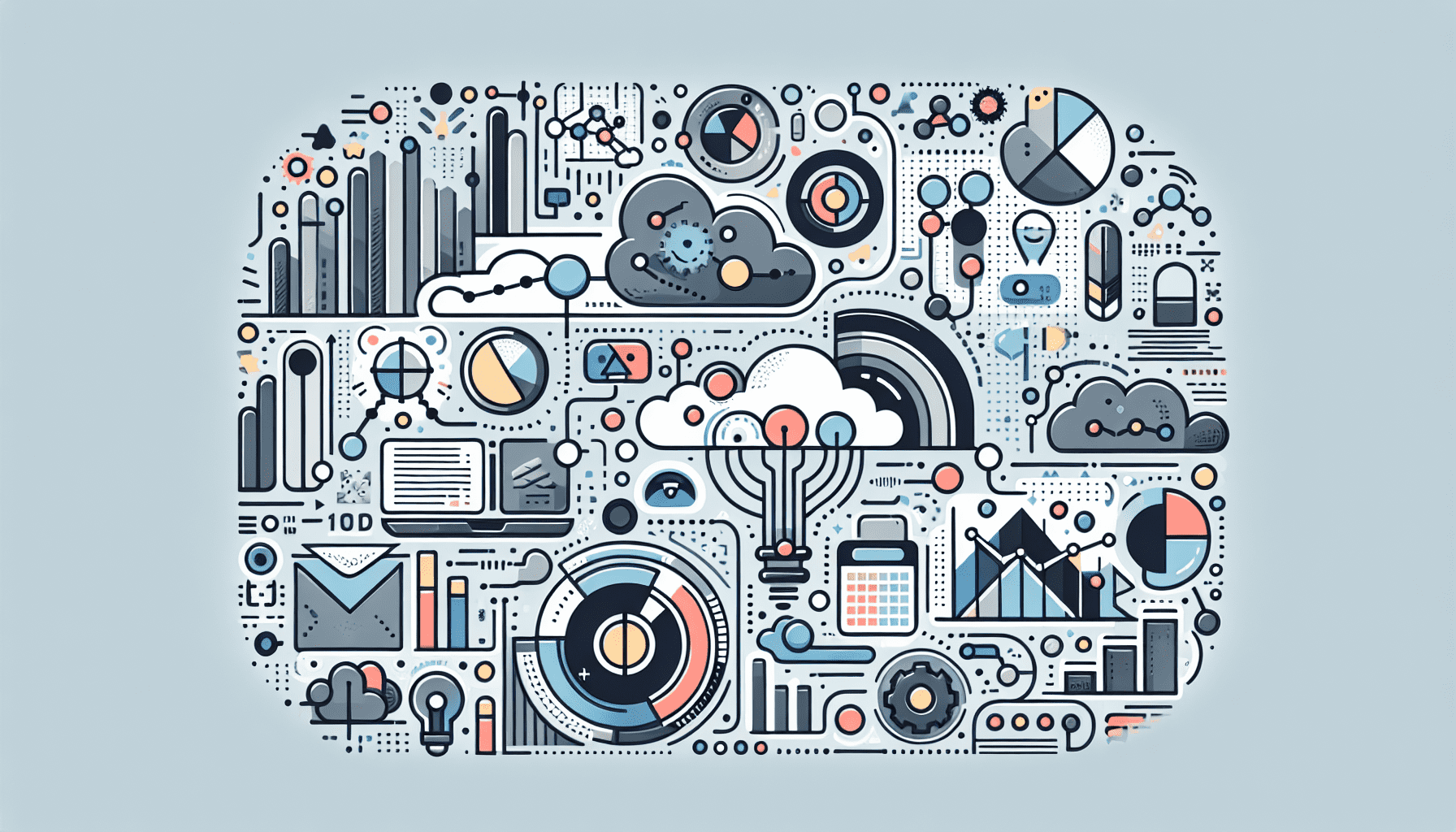Analytics as a Service (AaaS)

Analytics as a Service Briefly Summarized
- AaaS is a cloud-based solution that provides businesses with data analysis software and tools without the need for on-premise installations.
- It allows companies of all sizes to leverage big data analytics capabilities on a subscription basis, making it scalable and cost-effective.
- AaaS platforms often include features such as predictive analytics, customer behavior tracking, and integration with other cloud services.
- With AaaS, even non-technical users can gain insights and take action based on complex data analysis.
- The service is part of a broader trend towards insights as a service, which emphasizes the value of data-driven decision-making in enhancing customer experiences.
Analytics as a Service (AaaS) represents a transformative approach to data analysis, enabling businesses to harness the power of big data without the traditional overhead of building and maintaining their own analytics infrastructure. In this comprehensive guide, we will explore the concept of AaaS, its benefits, how it works, and its implications for businesses seeking to become more data-driven in their operations.
Introduction to Analytics as a Service
In the era of big data, companies across industries are looking for ways to extract actionable insights from their vast repositories of data. However, the complexity and cost of setting up and managing analytics systems can be prohibitive, especially for small and medium-sized enterprises (SMEs). This is where Analytics as a Service comes into play.
AaaS is a cloud-based service model that provides businesses with access to sophisticated analytics tools and capabilities without the need for significant upfront investment in hardware, software, or specialized personnel. It is a flexible and scalable solution that can be tailored to the specific needs of a business, allowing for the analysis of data at various levels of complexity.
How Analytics as a Service Works
AaaS providers typically offer a range of services that can be accessed over the internet. These services may include data storage, data processing, data visualization, and advanced analytics such as predictive modeling and machine learning. Users can connect to these services through a web interface or API, upload their data, and start analyzing it using the tools provided by the AaaS platform.
One of the key advantages of AaaS is its scalability. As a business grows or its data analysis needs change, it can easily scale up or down its use of AaaS resources. This is in stark contrast to traditional on-premise solutions, where scaling often requires significant additional investment in hardware and software.
Benefits of Analytics as a Service
The benefits of AaaS are numerous and can have a significant impact on a business's bottom line. Here are some of the key advantages:
- Cost Efficiency: By eliminating the need for on-premise infrastructure and reducing the reliance on in-house IT staff, AaaS can lead to substantial cost savings.
- Scalability: AaaS solutions can be scaled up or down based on the changing needs of the business, ensuring that companies pay only for what they use.
- Accessibility: With AaaS, analytics tools are accessible to a wider range of users within an organization, including those without technical expertise.
- Speed of Deployment: AaaS platforms can be deployed quickly, allowing businesses to start gaining insights from their data in a shorter timeframe.
- Focus on Core Business: By outsourcing the complexities of data analytics, companies can focus more on their core business activities.
Use Cases for Analytics as a Service
AaaS can be applied in various contexts, from marketing and sales to operations and human resources. Some common use cases include:
- Customer Behavior Analysis: AaaS helps businesses understand how customers interact with their products or services, enabling them to tailor their offerings to better meet customer needs.
- Predictive Maintenance: In manufacturing, AaaS can be used to predict when equipment is likely to fail, allowing for proactive maintenance and reducing downtime.
- Fraud Detection: Financial institutions can use AaaS to analyze transaction data in real-time to detect and prevent fraudulent activities.
- Personalized Marketing: Retailers can leverage AaaS to analyze customer data and deliver personalized marketing messages and offers.
Challenges and Considerations
While AaaS offers many benefits, there are also challenges and considerations that businesses should be aware of:
- Data Security: When using cloud-based services, data security is a paramount concern. Companies must ensure that their AaaS provider has robust security measures in place.
- Data Integration: Integrating data from various sources into the AaaS platform can be complex and may require additional tools or services.
- Regulatory Compliance: Businesses must ensure that their use of AaaS complies with relevant data protection and privacy regulations.
Conclusion

Analytics as a Service is a game-changer for businesses looking to capitalize on the power of data analytics. It democratizes access to advanced analytics capabilities, allowing companies of all sizes to make data-driven decisions that can drive growth and innovation. As the volume of data continues to grow, AaaS will likely become an increasingly essential tool for competitive advantage.
FAQs on Analytics as a Service
Q: What is Analytics as a Service (AaaS)? A: AaaS is a cloud-based service that provides businesses with access to data analytics tools and capabilities, enabling them to analyze data without the need for in-house infrastructure.
Q: Who can benefit from AaaS? A: Businesses of all sizes and industries can benefit from AaaS, especially those that lack the resources to build and maintain their own analytics systems.
Q: How does AaaS differ from traditional analytics? A: Unlike traditional analytics, which often require significant investment in on-premise infrastructure, AaaS is cloud-based and offers a scalable, pay-as-you-go model.
Q: Is data secure with AaaS providers? A: Reputable AaaS providers implement robust security measures to protect client data. However, businesses should always perform due diligence to ensure their data will be secure.
Q: Can non-technical users utilize AaaS? A: Yes, one of the advantages of AaaS is that it makes analytics tools accessible to non-technical users, allowing them to gain insights and make data-driven decisions.
Sources
- Google Analytics
- Analytics as a Service (AaaS) - What is AaaS? - Sisense
- What is analytics as a service? - Domo
- What Is Analytics As A Service (AaaS): Examples - Dataconomy
- Analytics as a service (AaaS) - what is it? - Toucan Toco
- Analytics as a service: Why more enterprises should consider ...
- Insights-as-a-Service: The Next Big Thing in Analytics | Simplilearn
- Data Analytics as a Service - ScienceSoft
- Analytics-as-a-Service (AaaS): Data-Driven Growth | Bold BI
- What is Analytics as a Service (AaaS)? - Big Data LDN
- Data-Analytics-as-a-Service (DAaaS): Explained - Symbio6